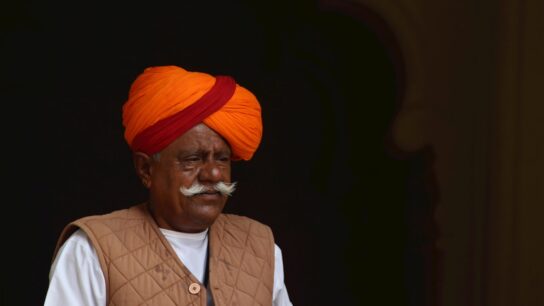“Delbar: A Tale of Love, Loss, and Resilience” is a novel written by an Iranian author that explores the themes of love, loss, and resilience in the context of Iranian society. The novel tells the story of Delbar, a young woman who faces numerous challenges and hardships throughout her life. It is a poignant and powerful tale that has become an important work in Iranian literature.
The novel holds great significance in Iranian literature as it provides a unique perspective on the experiences of women in Iranian society. It sheds light on the struggles they face and the resilience they exhibit in the face of adversity. “Delbar” also explores themes of love and loss, delving into the complexities of human relationships and the impact they have on individuals.
Key Takeaways
- “Delbar: A Tale of Love, Loss, and Resilience” explores the themes of love, loss, and resilience in Iranian society.
- The story of Delbar follows a young woman’s journey through heartbreak and tragedy, ultimately finding strength in her own resilience.
- The characters in “Delbar” are complex and nuanced, reflecting the complexities of Iranian culture and society.
- Culture and tradition play a significant role in “Delbar,” highlighting the importance of preserving and honoring one’s heritage.
- The symbolism in “Delbar” adds depth and meaning to the story, inviting readers to interpret the text in their own unique ways.
The Story of Delbar: A Brief Overview
“Delbar” follows the life of its eponymous protagonist, Delbar, from her childhood to adulthood. The story begins with Delbar’s idyllic childhood in a small village in Iran. However, her life takes a tragic turn when her parents are killed in a car accident. Delbar is then sent to live with her aunt and uncle in Tehran.
In Tehran, Delbar faces numerous challenges as she tries to navigate her new life. She struggles to fit in at school and faces discrimination due to her rural background. Despite these obstacles, Delbar remains resilient and determined to succeed. She excels academically and eventually earns a scholarship to study abroad.
While studying abroad, Delbar falls in love with a fellow student named Amir. Their relationship is tested when Delbar’s visa expires and she is forced to return to Iran. Despite the distance between them, Delbar and Amir remain committed to each other and continue their relationship through letters.
The Themes of Love, Loss, and Resilience in “Delbar”
One of the central themes in “Delbar” is love. The novel explores the different forms of love, from romantic love to familial love. Delbar’s love for Amir is a driving force in her life, giving her hope and strength even in the face of adversity. The novel also explores the love between Delbar and her family, highlighting the importance of these relationships in shaping her identity.
Loss is another prominent theme in “Delbar.” Delbar experiences loss at a young age when her parents die, and this loss continues to shape her throughout her life. The novel explores how Delbar copes with loss and how it impacts her relationships and sense of self. It also delves into the broader theme of loss in Iranian society, particularly the loss of cultural identity and traditions.
Resilience is a key theme that runs throughout the novel. Despite the challenges she faces, Delbar remains resilient and determined to overcome them. Her resilience is a testament to the strength of character and the power of hope. The novel highlights the importance of resilience in navigating difficult circumstances and finding meaning and purpose in life.
The Characters of “Delbar”: A Detailed Analysis
“Delbar” features a diverse cast of characters, each with their own unique personalities and motivations. Delbar herself is a complex character who undergoes significant growth and transformation throughout the novel. She is portrayed as a strong-willed and determined young woman who refuses to let her circumstances define her.
Amir, Delbar’s love interest, is another important character in the novel. He is portrayed as a kind-hearted and supportive partner who stands by Delbar through thick and thin. His love for Delbar serves as a source of strength for both characters.
Other notable characters include Delbar’s aunt and uncle, who provide both support and obstacles for Delbar as she tries to navigate her new life in Tehran. The novel also features a range of secondary characters who play important roles in Delbar’s journey, including her classmates, teachers, and mentors.
The Importance of Culture and Tradition in “Delbar”
Culture and tradition play a significant role in “Delbar.” The novel explores the tension between traditional Iranian values and the desire for modernity and progress. Delbar’s rural background and traditional upbringing clash with the cosmopolitan lifestyle of Tehran, leading to conflicts and challenges for the protagonist.
The novel also highlights the importance of cultural identity and the loss that can occur when traditions are abandoned or forgotten. Delbar’s journey is marked by a struggle to reconcile her rural roots with her aspirations for a more cosmopolitan life. This struggle reflects the broader tension between tradition and modernity in Iranian society.
The Symbolism in “Delbar”: An Interpretation

“Delbar” makes use of various symbols to convey its themes and messages. One prominent symbol in the novel is the rose, which represents love, beauty, and resilience. The rose serves as a reminder of the power of love to overcome adversity and bring hope.
Another symbol in the novel is the mirror, which represents self-reflection and introspection. Delbar often looks into mirrors to examine herself and her place in the world. The mirror symbolizes the search for identity and the need to understand oneself in order to navigate life’s challenges.
The Writing Style of “Delbar”: A Critique
The writing style of “Delbar” is characterized by its lyrical prose and vivid descriptions. The author uses rich imagery to bring the story to life, painting a vivid picture of Iranian society and its complexities. The writing style is engaging and draws readers into the world of the novel.
One strength of the writing style is its ability to evoke emotion in readers. The author’s use of language and imagery creates a powerful emotional impact, allowing readers to connect with the characters and their experiences. The writing style also effectively conveys the themes of love, loss, and resilience, adding depth and nuance to the story.
However, one weakness of the writing style is its tendency towards verbosity. At times, the novel can feel overly descriptive and repetitive, which can detract from the pacing and flow of the story. Some readers may find themselves getting lost in the details and losing sight of the larger narrative.
The Reception of “Delbar” by Critics and Readers
“Delbar” has received positive reviews from both critics and readers. Critics have praised the novel for its exploration of complex themes and its nuanced portrayal of Iranian society. The novel has been lauded for its powerful storytelling and its ability to evoke emotion in readers.
Readers have also responded positively to “Delbar,” with many praising its relatable characters and compelling narrative. The novel has resonated with readers from diverse backgrounds, who have found common ground in the universal themes of love, loss, and resilience.
The Impact of “Delbar” on Iranian Literature and Society
“Delbar” has had a significant impact on Iranian literature and society. The novel has sparked important conversations about gender roles, cultural identity, and the challenges faced by women in Iranian society. It has also inspired other writers to explore similar themes in their own work.
In addition, “Delbar” has contributed to a broader shift in Iranian literature towards more diverse and inclusive narratives. The novel has challenged traditional literary conventions and provided a platform for marginalized voices to be heard.
The Significance of “Delbar” in Contemporary Literature
In conclusion, “Delbar: A Tale of Love, Loss, and Resilience” is a powerful novel that explores important themes in the context of Iranian society. It is a testament to the resilience of women in the face of adversity and a celebration of the power of love to overcome challenges. The novel’s impact on Iranian literature and society cannot be overstated, as it has sparked important conversations and inspired other writers to explore similar themes. “Delbar” is a significant work in contemporary literature and a must-read for anyone interested in exploring the complexities of human relationships and the resilience of the human spirit.
If you’re interested in learning more about the benefits of telehealth and its impact on mental health, you should definitely check out this insightful article on Calm Telehealth’s website. It explores the growing popularity of telehealth services and how they have revolutionized the way we access mental health support. Discover how telehealth platforms like Delbar are making therapy more accessible and convenient for individuals seeking professional help. Click here to read the full article and gain a deeper understanding of the positive changes telehealth has brought to the field of mental health.
FAQs
What is Delbar?
Delbar is a Persian word that means “beloved” or “darling”. It is often used as a term of endearment for loved ones.
What is the origin of the word Delbar?
The word Delbar has its roots in the Persian language, which is spoken in Iran and other parts of Central Asia.
What is the significance of Delbar in Persian culture?
Delbar is a term of endearment that is commonly used in Persian culture to express love and affection for someone. It is often used between family members, friends, and romantic partners.
Is Delbar a popular name in Persian culture?
Yes, Delbar is a popular name for girls in Persian culture. It is also used as a surname in some cases.
What are some other words that are similar to Delbar?
Other words that are similar to Delbar in meaning include “aziz” (dear), “jan” (soul), and “eshgh” (love).



